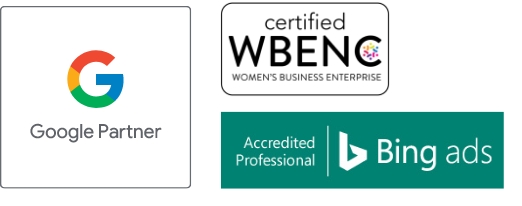
How to Balance Innovation and Regulation in Life Sciences Marketing Campaigns
Life sciences marketing is governed by some of the most stringent regulations in any industry due to the potential impact on patient safety and public health. Whether you’re promoting a new drug, a diagnostic tool, or a healthcare technology solution, staying compliant with regulations from authorities like the Food and Drug Administration and laws like the Health Insurance Portability and Accountability Act (HIPAA) is critical. While these regulations exist to ensure safety, efficacy, and quality, they can also make it challenging to craft compelling, innovative marketing campaigns. Understanding how to balance creative marketing strategies with compliance is essential.
4 PROVEN STRATEGIES TO KEEP CREATIVE CAMPAIGNS COMPLIANT
Regulatory guidelines change over time, and companies must stay up to date with these developments to ensure ongoing compliance. Ignoring or overlooking these standards can result in fines, lawsuits, and damage to your brand reputation. Statements in marketing materials cannot be misleading, claims must be substantiated, and benefits and risks must be proven and clear. When it comes to life sciences marketing, you have a responsibility to be ethical and prioritize people over profits in every communication. Here are some strategies for making an impact while maintaining compliance.
- Train Your Teams: Ensure all team members involved in marketing activities receive comprehensive compliance training. Sales representatives, marketing professionals, and senior management must all understand the laws and regulations that govern your work, from FDA guidelines to industry codes. Training should also include guidance on ethical decision-making and best practices for adhering to regulatory standards.
- Establish Clear and Comprehensive Policies: Develop clear policies outlining expectations for marketing conduct, procedures for reviewing and approving promotional materials, and guidelines for engaging with healthcare professionals. Regularly reviewing these policies ensures they remain aligned with the latest regulatory changes.
- Regularly Monitor Marketing Assets: Proactive monitoring allows you to address issues early, keeping your marketing strategies in line with regulatory requirements. Digital tools such as compliance management systems and digital asset management platforms streamline workflows, centralize documentation, and enhance collaboration across teams. Advanced analytics tools can also help monitor promotional activities, detect trends, and flag potential compliance issues, allowing your team to take corrective action before violations occur.
- Collaborate With Legal and Regulatory Experts: The complexity of life sciences regulations necessitates collaboration with legal and regulatory experts. These professionals can provide critical guidance on interpreting ambiguous rules, ensuring compliance, and avoiding costly mistakes.
HOW MARKETING CAN PLAY A CRITICAL ROLE IN COMPLIANCE
By communicating key regulatory information and how your products or services adhere to regulations or even contribute to compliance, you can position your company as a valuable partner to patients, healthcare providers, and other customers.
For example, if you work for a healthcare equipment supplier, to maintain regulatory compliance, you might promote your company’s products or tools with a focus on precise environmental controls, ingredient integrity, and dosing accuracy.
In your marketing materials, emphasize the ways your products mitigate the risks of human error, maintain optimal conditions for sensitive medications or materials, enhance ingredient traceability, and ensure authenticity. Marketing materials should clearly articulate what regulatory standards are relevant to your customers and how your products are designed to meet and maintain those standards.
STANDING OUT WITH HIGH STANDARDS
As a life sciences marketer, you can differentiate your company as both a solutions provider and a trusted partner in regulatory compliance. In an industry where a single misstep can have significant consequences, fostering a culture of compliance prioritizes patient and consumer safety, transparency, and ethical responsibility.
LIGHTSTREAM specializes in creating innovative, compliant, and results-driven marketing solutions tailored to your unique needs. Ready to elevate your strategy and stand out in the competitive life sciences industry? Contact LIGHTSTREAM today.
